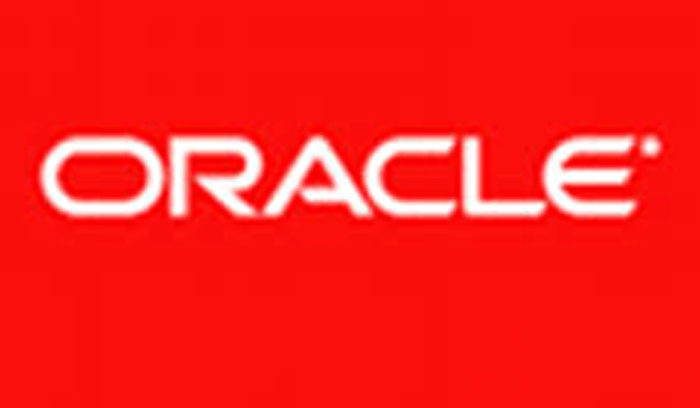An increasing number of businesses in Asia are turning toOracle Autonomous Database- the industry’s first self-driving, self-securing, self-repairingdatabase –togain deeper and more meaningful data insight, faster than ever before. Eleven such organisations will showcase the value being gained during Oracle OpenWorld Singapore this week, including the likes of Bitmain and Kingold from China, Vodafone Fiji, Hong Kong Maxim’s Group, National Pharmacies and Applied Precision Medicine from Australia, Forth Smart and Rangsit University from Thailand and others.
Oracle Autonomous Database uses ground-breaking machine learning and automation todeploy, optimize, patch and secure itself with no human intervention, bringing new levels of performance, security, and efficiency.As a result users have proven that they are able to significantly improve and fast-track business decisions, improve their customer experience, introduce new products/services to market quicker and create a smarter workforce.
Steve Daheb, Senior Vice President, Oracle Cloud, said: “Oracle Autonomous Database is one of the most successful new product introductions in Oracle’s 40-year history. Today we are seeing users across the globe realising the benefit of autonomous. Already, we have nearly 1,000 paying Autonomous Database customers and around 4,000 new Autonomous Database trials were added in the last quarter alone. This momentum confirms that the Autonomous Database has arrived at a perfect time for our customers, when data is growing at an almost immeasurable rate and we need a new way of managing, securing and getting value from data.There are some great examples of companies using it here in Asia to reduce costs and risk, automate core tasks so they can focus on innovation, and to empower all areas of the business from finance, to Marketing and HR to get maximum value and insight from their data.”
Sharing their stories at Oracle OpenWorld Singapore are:
PawaritRuengsuksilp, Business Development Analyst, Forth Smart, said, “Using Oracle Autonomous Data Warehouse has been a complete game-changer for us. Operating over 120,000 vending machines nationwide to give our customers the ability to do things like top-up their mobile phones and e-wallets and transfer money to friends and family, our business generates a lot of transactional data – around 2 million transactions per day. Now, with Autonomous Database, we are able to generate real-time insight into our network of vending machines, whereas previously this would have taken us 2-3 days. This has had a significant impact across our financial reporting, ability to undertake complex segmentation and predictive analytics, allowing us to focus more of our efforts on innovation.”
Louis Mah, Director, Information Technology, Hong Kong Maxim’s Group, said: “Operating over 70 brands in Hong Kong and Macau regions, Mainland China and South East Asia across more than 1,300 outlets in an industry as fast-paced as the food industry, we need to stay on-top of our game. Data is key to helping us do this, but with more than 600,000 transactions records per day in Hong Kong alone it is hard for us. Using a mix of Autonomous Data Warehouse and Oracle Analytics Cloud, mixed with detail from our ERP systems, we can now get extremely timely and valuable information regarding consumer habits and behaviour, and rapidly adapt to changes in how our different restaurants are performing. This is essential, especially as we look to expand into Mainland China and further into South East Asia.”
Ryan Klose, Executive General Manager – Corporate, National Pharmacies, said, “Today delighting customers and delivering a personalised experience is everything. So we want the holy grail of getting data centralised around the patient. This will help ensure we have the right products on shelves and that when health practitioners talk to patients they have the latest and complete information, can join the dots and make informed decisions. But that’s hard. Traditionally, backend systems across the heathcare industry are legacy and have limited data sharing, often designed purely to transact the event at that time. Additionally, we are talking significant data volumes– we fulfill four million medical prescriptions alone each year, and that’s without other information regarding products, or even external factors such as weather. What having access to the power of autonomous database means is that we can give us real time insight, securely and at speed, and that’s transformative.”
Steve Chang, CIO, Kingold, said, “Through the use of Autonomous Data Warehouse and Oracle Analytics Cloud we have been able to completely transform the way we operate. We have been able to completely streamline how we collect information. Previously for deep market insight we would have been heavily reliant on buying in expensive reports from third parties. Now, we are able to do most of the research and analysis ourselves. The output is also really helping our sales teams become data driven and identify which properties to target the right customers, rather than using their instinct to make decisions.”
Hwee-Xian Tan, Senior Analyst, SoHo and SME Research, “We continue to see Asia-Pacific enterprises opening up to and having a sharper appetite for database-as-a-service (DBaaS) propositions with AI and ML features being particularly strong drivers for enterprise migration to cloud-based database environments. This is due to the cost reductions they deliver, and their ability to derive new business insights at speed. This has the potential to shift the global cloud arms race amongst hyperscale cloud players towards those that have a strong play in controlling enterprise databases – most of which still reside in a legacy clientserver infrastructure.”
Asia’s Enterprises Realize The Power Of Oracle Autonomous Database
previous post

